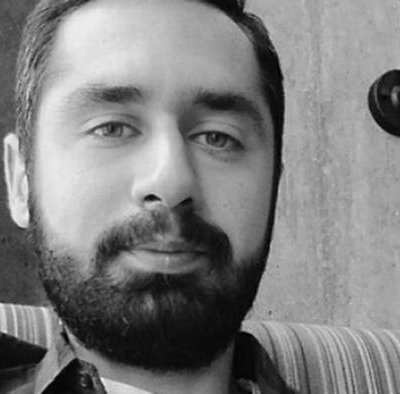
Last Update
Unknown
Organisation
Unknown
Gender
Male
Ethnic Group
Unknown
Religoius Group
Muslim
Province
Tehran
Occupation
Journalist
Sentence
Unknown
Status
Released
Institution investigating
Unknown
Charges
Unknown
Arash Zad Released
No Islamic Republic security agency took responsibility for his arrest and nothing was known about his fate until more than two years later, when he tweeted that he had been released.
Arash Zad is the pen name of Hossein Zad-Haghighi, an Iranian journalist and online entrepreneur. He was formerly the editor of the Persian-language website Weblogina, an online magazine focusing on information technology innovations (the domain was later put up for sale). He is also the director of Zigzag Lab, which, according to its mission statement, creates “high quality web products, online services and digital experiences for our Iranian users.” The company offers “email automation tools for e-commerce businesses” and includes a startup called Ladybug “that aspires to produce a generation of women in Iran who are enthusiastic about and active in different technological fields.”
In 2014, Ladybug won the United Nation's Youth Award, a “global contest which brings together young developers and digital entrepreneurs — under 30 years of age — who use internet and mobile technology to put the UN Millennium Development Goals (MDGs) into action and make a difference.”
The award’s site describes Ladybug as “an Iranian startup for a new generation of women enthusiastic about and active in different technological fields. Ladybug has a young team of managers all under 30 living in Iran. In only 12 months, like-minded partners came together and invested in video-making, promotional photos and the overall design, leading Ladybug to successfully catch the attention of the public.”
Arash Zad had also planned to launch a project to establish workshops for older people to teach them how to use new communication tools and how to ensure their online activities were secure. This was a response to the extensive exodus of journalists and activists from Iran and the difficulties that their families encounter when they attempt to communicate with them.
On August 1st 2015, as he was about to board a plane from Tehran to his home in Istanbul, Zad was arrested and was taken to an unknown place. No authority claimed responsibility for his arrest and his family refused to talk to the media about him.
“At first we did not know that Arash was arrested,” Nariman Gharib, an internet researcher, told the Center for Human Rights in Iran (CHRI) in September 2015. “Then we started receiving phishing emails from his personal email account. When we pursued the matter we found out that Arash had been arrested.” According to Gharib, “considering the record of these kinds of arrest, it is likely that Arash was arrested by the Revolutionary Guards.”
Even Non-Political Bloggers can be Arrested
Arash Zad had started his online activities in 2007 and had always steered clear of politics. Amin Sabeti, an Iranian internet researcher who follows cases of people living in Iran who are arrested for online activities, told the online magazine Slate that he regarded Zad's arrest “as a strong signal from the Revolutionary Guards.” In the new climate of open foreign investment that followed the nuclear agreement, the guards began issuing a warning to entrepreneurs, technologists, and bloggers, he said.
“This arrest highlights the often unexpected turn of events for those with a public online presence within Iran can face,” the Slate article said .”This is not the first time a technologist and blogger, with no particular political agenda, has been persecuted in Iran. In 2013, the eight technology bloggers known as Narenji [“Orange”] were similarly arrested for arbitrary reasons that many associated with their connections to Western organizations.
“It is clear, however, that Iranian authorities such as the Revolutionary Guards perceive threats to the state based on red lines that are often invisible to the ‘offenders’ and tied to the current political climate. It seems as if Iran’s hardliners are increasingly concerned about the country’s startup community. In an article of caution against startup projects, the newspaper Kayhan, which is affiliated with the office of the Supreme Leader, warned that Western-funded startup projects could steal the ideas and labor of Iran’s educated and entrepreneurial youth. Given the importance of this publication, this is a clear sign that greater controls in this sphere are coming.”
The prosecutor had accused the Narenji group of activities against national security by cooperating with “foreign networks” and helping “counter-revolutionary” sites, using both form and content to try to “overthrow” the Islamic Republic. It is not known whether Arash Zad was charged with the same transgressions.
During Arash Zad’s imprisonment, no information about his situation was available. It is the usual practice of Islamic Republic’s security agencies to warn the families not talk to the media, stating that such behavior would have a negative effect on their cases. Using the hashtag “#FreeArashZD,” his friends and colleagues launched a campaign on social networks, including Facebook and Twitter, and asked the Islamic Republic’s officials to provide information about him and his health. They received no reply.
Then on December 25th 2017, Zad posted on Twitter that he had been released. “After an absence of two and a half years I am back. Free from bondage, free from walls. Greetings,” he tweeted, along with a smiley-face emoji.
He provided no further information. At the current time, it is not clear exactly when he was released, why he was arrested in the first place, or what charges he faced.